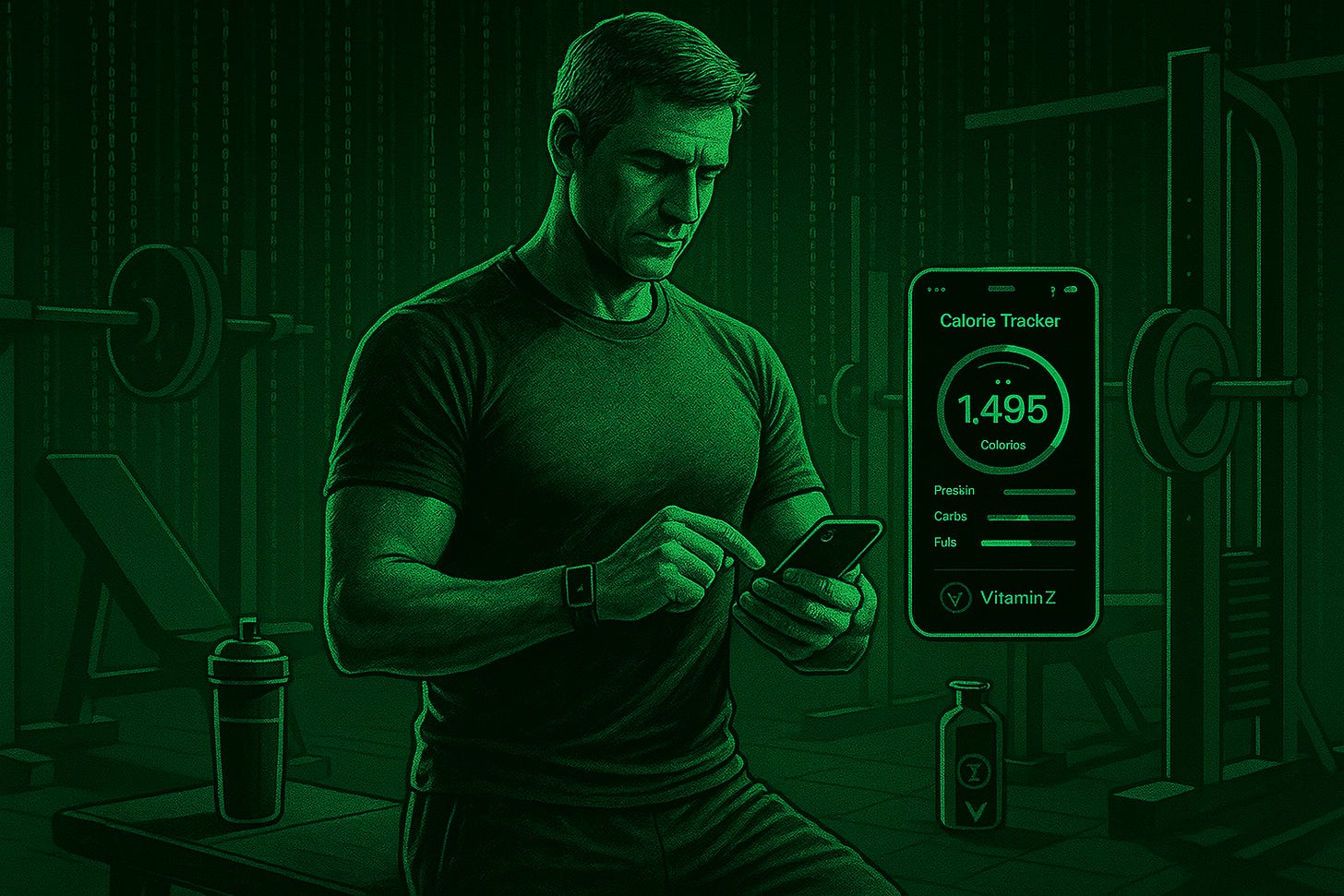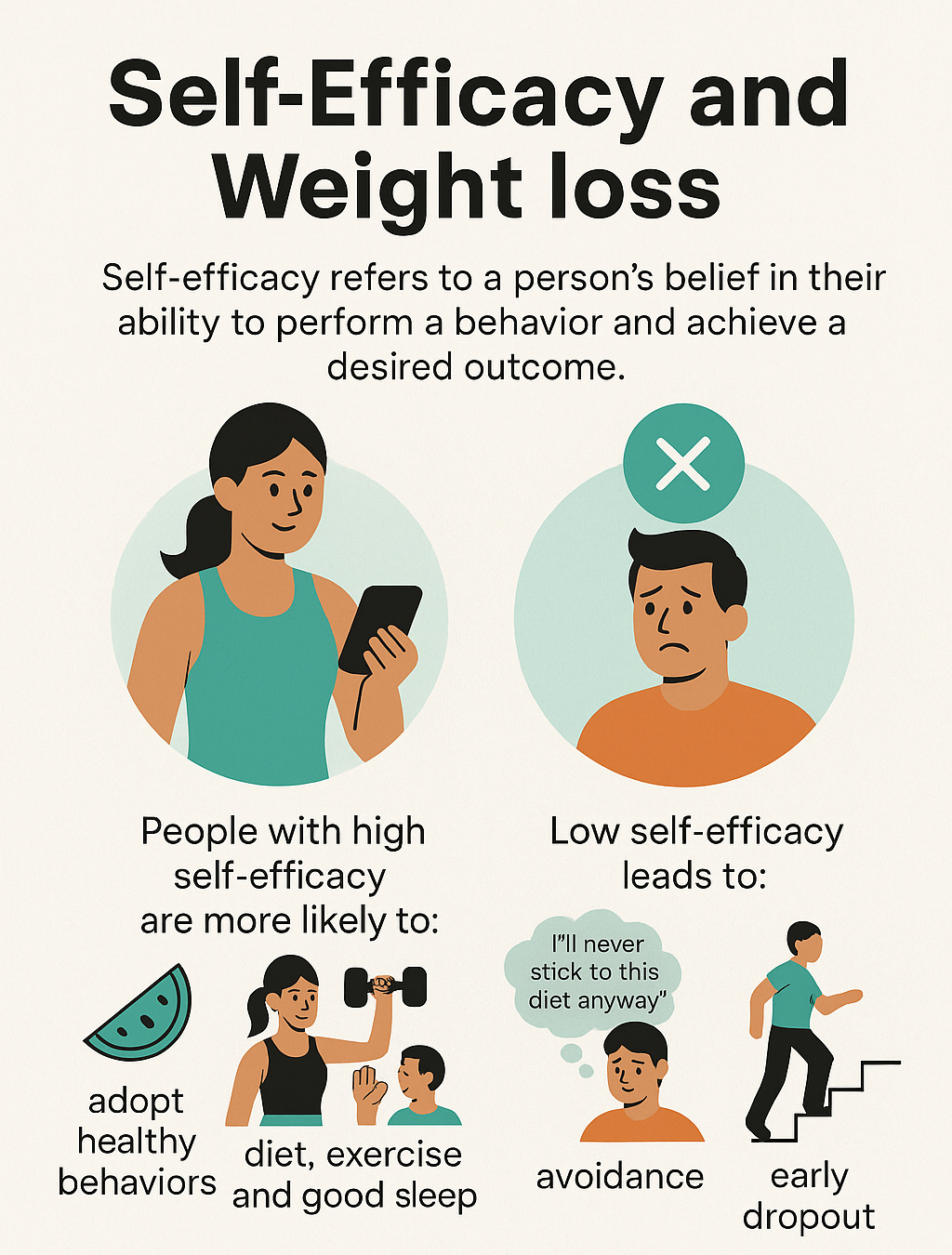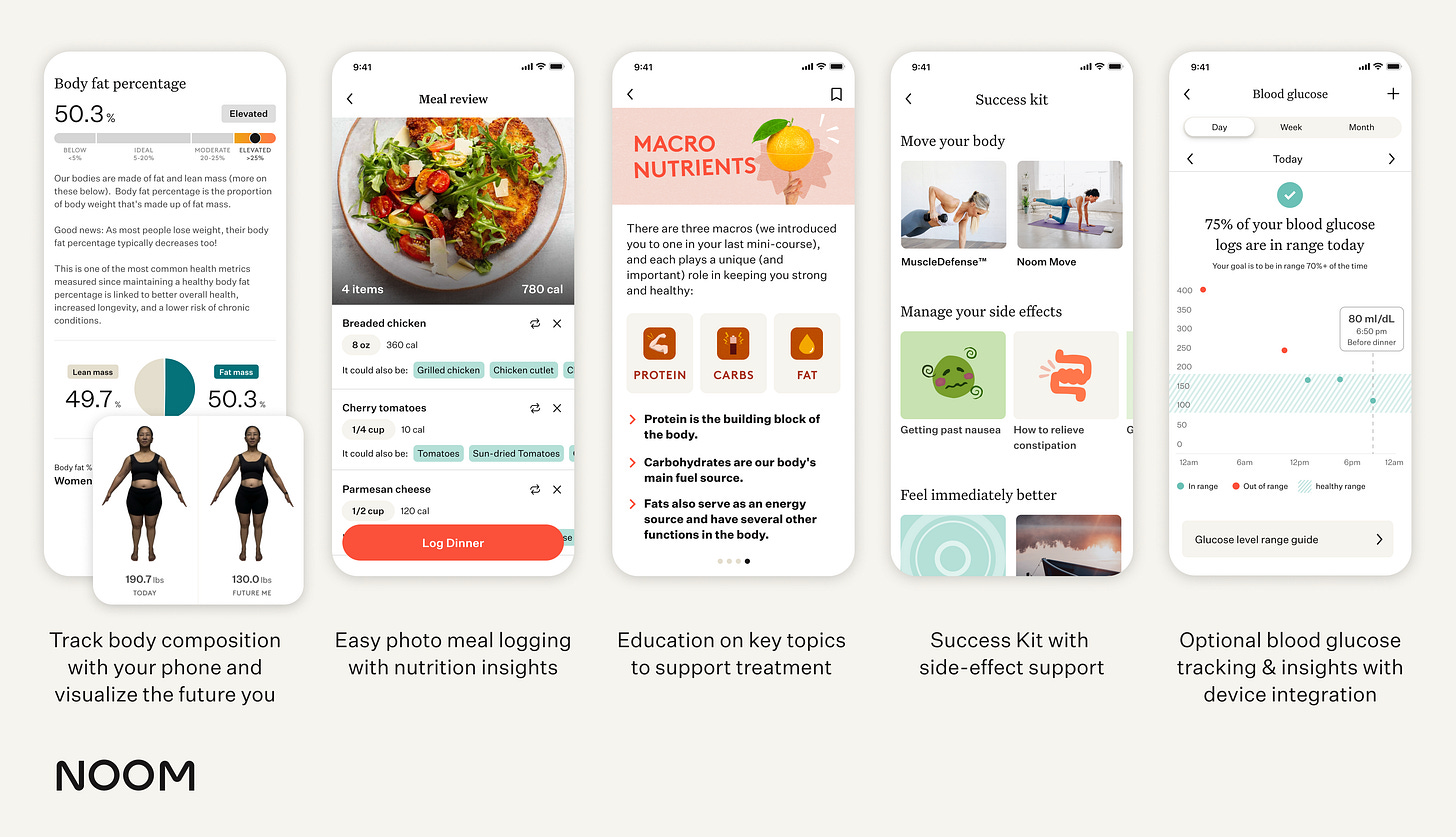Beyond Ozempic: The Missing Ingredient in Weight Loss
Self-efficacy, feedback loops, and how to achieve health outcomes that last.
My weight-loss journey started with a rude awakening: I was out of shape.
I’d gotten into bad habits in New York. My version of cardio consisted of walking from the pizza store to the bar. Instead of weightlifting, I’d haul cases of beer from the bodega up to my apartment.
By the time I moved to LA, I’d developed a dad bod. Love handles. Everyone around me in Santa Monica seemed to have a perfect beach body, walking around shirtless, showing off their six-pack. Not me. I was embarrassed to take off my shirt in public.
Being out of shape in LA was unacceptable. My friend Ila told me: “You need to get in shape if you want to date in LA. You need not just a 6 pack, but a 12 pack.”
This is the story of my fitness journey. I’ll share what I did to lose fat and build muscle. But first, I want to address a common misconception about weight loss.
What is Self-Efficacy?
“Believe in yourself, even when no one else does.”
When it comes to weight loss, we obsess over diet and exercise. But the real key to slimming down might be something deeper, more profound: Believing you can do it.
Psychologists call it self-efficacy.
Albert Bandura, a pioneer of positive psychology, was the first to describe this concept in the 1970s. It refers to a person’s belief in their ability to perform a behavior and achieve a desired outcome.
People with high self-efficacy are more likely to adopt healthy behaviors associated with weight loss — diet, exercise, and good sleep — because they believe their efforts will pay off. They feel more confident that they can resist overeating at a party or when upset.
On the flip side, low self-efficacy leads to avoidance (“I’ll never stick to this diet anyway”) or early dropout when obstacles arise.
Dr. Pouran Faghri, a UCLA professor and expert in behavioral interventions, says staying motivated on a weight loss program isn’t just about diet and exercise. People face several challenges:
Physiological factors: Metabolism, hormones, and genetics affect how the body stores and loses fat.
Psychological factors: Stress, sleep quality, social interactions, and hormonal changes can affect motivation and emotional well-being.
Environmental factors: Events, gatherings, or holidays can impact weight loss efforts, making it harder to access healthy foods and get exercise.
Meds + Behavior Change = Sustained Weight Loss
Addressing self-efficacy through coaching and cognitive behavioral therapy can help people build confidence in their ability to control their weight and make lasting lifestyle changes, says Dr. Faghri.
Self-efficacy also explains why GLP-1 drugs like Ozempic are so effective in promoting weight loss.
There’s been a paradigm shift in how the medical community views obesity — from a failure of willpower, to a condition that can be managed medically.
Just as someone with high cholesterol goes on statins, it’s becoming routine for clinicians to treat obesity with GLP-1 medications. The drugs are incredibly effective. For millions of people, GLP-1s are life-changing.
Weight loss drugs are not a miracle cure. Diet and exercise still matter. In fact, if you read the label on GLP-1s like Ozempic, it says the drug is to be used as an adjunct to diet and exercise.
Most healthcare providers today say the best approach to managing obesity is to marry behavior change — diet, exercise, sleep, etc. — with GLP-1 medications like Ozempic.
GLP-1s aren’t meant to be forever drugs. They’re expensive and they have side effects. Studies show that roughly half of people stop taking them within one year.
What these drugs CAN do is deliver quick wins that inspire confidence and boost self-efficacy. They jumpstart weight loss and help build confidence. They give people the belief they can reach their long-term health goals.
Digital Health Tools for Self-Efficacy
Digital tools like Noom have helped millions of people lose weight. Noom addresses self-efficacy via goal-setting, feedback loops, and community support. [Disclosure: I am an advisor to Noom.]
A study of 100 overweight people (Annals of Behavioral Medicine, 2025) found that using an app to track their diet was associated with higher engagement and better weight loss outcomes. People with higher self-efficacy were more likely to log their meals, even when they were feeling tired. They lost the most weight after 3 months.
Noom’s research shows that people who experience the most weight loss in the first month are the ones who are most likely to stick with a program.
Why? The initial weight loss becomes self-sustaining. It’s a basic principle of habit formation. When you put in effort and get a reward, you’re more inclined to keep putting in effort. You’re more likely to stick with it.
Noom members who combine GLP-1 medication with a comprehensive behavior change program get reliable weight loss, especially in the first few months. They’re more likely to stick with the healthy habits — and more likely to stick with the medication.
My Weight Loss Journey
For me, getting in shape boiled down to three things:
Developing healthier habits
Logging my workouts and nutrition
Monitoring my progress
I started going to the gym every day. Strength training four times a week. I tracked every workout, prepped all my meals and counted calories. My daily target: 150 grams of protein and a 500 calorie deficit.
I’ve never used GLP-1 medications like Ozempic. I was able to hit my calorie goals through meal prep, food logging, and sticking to the routine.
I became obsessed with tracking my progress. Weekly weigh-ins. Body scans. Checking my steps each day. Using a Whoop strap to check my sleep and recovery.
Logging my meals and workouts gave me feedback loops that psychologists call mastery experiences, the most powerful way to build self-efficacy.
My new routine paid off. I hit a new fitness goal: 12% body fat. My love handles were gone. For the first time since I could remember, I had abs. No 6-pack or 12-pack, but a definite win for this 40-something guy.
Ways to Boost Self-Efficacy
For anyone on a weight loss journey, here are some proven tips to increase self-efficacy and reach your goals:
Goal-setting: Break large goals (e.g., “lose 20 lbs”) into small, actionable steps. Achieving micro-goals reinforces self-efficacy.
Habit tracking: Use apps or journals to visualize progress. Seeing data-driven evidence of success boosts belief in ability.
Positive reinforcement: Celebrate milestones (not just the number on the scale, but consistency in behaviors).
Reframing setbacks: Think of lapses as learning opportunities, not failures. This maintains confidence and persistence.
Peer/community support: Group programs, buddy systems, and online forums help build self-efficacy via peer support and encouragement.
Achieving lasting weight loss is about more than just drugs or diets.
It’s about leaning on your community for support, and finding ways to stay motivated.
It’s building belief—self-efficacy—that you can succeed, for life.
Note to readers: I recently launched my new professional website and am currently taking on a limited number of new consulting clients. If you would like to work with me, please shoot me an email.
By Daniel Zahler
Hi there and thanks for reading. I created Vitamin Z to share my research on health and wellness, longevity and healthy aging, and ways to optimize cognitive, physical and emotional health. I have interviewed hundreds of doctors and health system leaders to help my clients spot trends and opportunities in healthcare. I am an advisor to Noom, a digital health company helping millions live better longer, and a project leader at GLG, where I advise global business leaders on healthcare innovation.
Enjoyed your reading experience?
Follow me on LinkedIn and X / Twitter
Hit reply with your feedback and ideas :)
Share this post with others.





https://open.substack.com/pub/thetimetravellers/p/the-great-balloon-race-how-to-eat-inflate-and-shrink-all-at-once-11b0f474e215?r=69wi1d&utm_campaign=post&utm_medium=web&showWelcomeOnShare=false